CBD Bioavailability – Maximising the effects!
Estimated reading time: 13 minutes
Welcome to The Real CBD. In this blog, we explain all you need to know about CBD Bioavailability.
- Introduction CBD Bioavailability – Maximising the effects!
- What Is CBD Bioavailability?
- Factors Affecting CBD Bioavailability
- The Importance of CBD Bioavailability
- Sublingual CBD Bioavailability: Tinctures and Oils
- Edible CBD Bioavailability: Capsules and Gummies
- Transdermal: Topicals and Patches
- Inhaled CBD Bioavailability: Vapes and Smokeables
- Rectal CBD Bioavailability
- The Intravenous way
- Best CBD bioavailability oil vs. inhalation
- CBD Marketing Claims: “Boosting Bioavailability”
- The Real CBD Commitment to High Bioavailability
- CBD and the Grape Fruit Effect
- The Takeaway: Maximizing CBD Bioavailability
- FAQ
Introduction CBD Bioavailability – Maximising the effects!

It is common knowledge that purchasing CBD products can be expensive. There are several expenses associated with producing premium CBD products, but how can we make sure we get the most out of our CBD oil?
CBD bioavailability holds the key to releasing its full potential. It establishes the amount of the active components that genuinely enter your bloodstream and start working. The potency and mode of use of CBD determine its bioavailability.
A CBD gummy, for instance, might state that it has 15 mg of CBD, but only a small portion of that amount really enters your system. How come? Because CBD must first pass through our digestive system before it can be absorbed in the small intestine.
If we could increase the bioavailability of CBD, we would not require such high dosages to get the desired effects, which would reduce the cost of CBD. Thankfully, CBD is a very adaptable substance that can be taken in a variety of ways, and advancements in this area are only getting started.
We'll examine the CBD delivery strategies with the best bioavailability in this post, along with advice on how to get the most out of using CBD.
What Is CBD Bioavailability?
CBD, short for cannabidiol, is a natural compound found in the Cannabis sativa plant. It is known for its potential therapeutic benefits, which include reducing anxiety, alleviating pain, and promoting overall well-being. However, when you consume CBD, not all of it reaches your bloodstream to exert its effects. This is where bioavailability comes into play.
Bioavailability is a term that refers to the percentage of a substance that your body can actually absorb and use. In the context of CBD, it tells us how much of the CBD you consume actually gets into your bloodstream. The higher the bioavailability, the more effectively your body can utilize the CBD.
Factors Affecting CBD Bioavailability
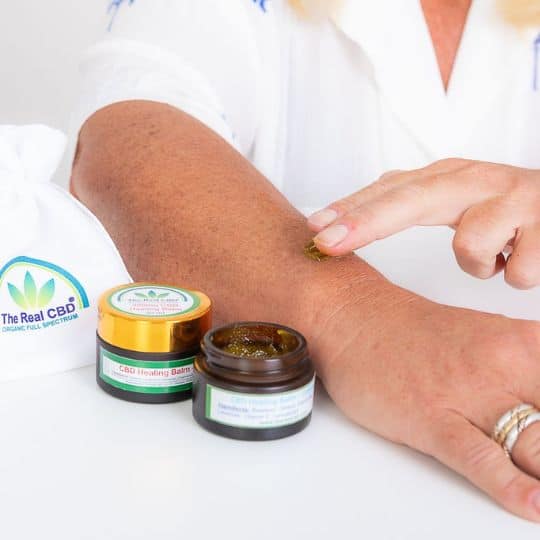
Several factors can influence the bioavailability of CBD. Let us break down some of the key ones:
1. Method of Consumption
The way you take CBD greatly affects its bioavailability. Here are a few common methods:
- Oral Ingestion: When you swallow a CBD capsule or gummy, it has to pass through your digestive system before reaching your bloodstream. This process can reduce bioavailability, as some CBD may be lost during digestion.
- Sublingual: Placing CBD oil drops under your tongue allows for faster absorption through the tiny blood vessels in the mouth. This method typically results in higher bioavailability.
- Inhalation: Smoking or vaping CBD delivers it directly into your lungs and bloodstream, offering rapid and efficient absorption. This method often has the highest bioavailability.
2. Dosage
The amount of CBD you take also matters. Higher doses tend to have better bioavailability, as there's more CBD available for absorption.
3. Product Quality
The quality of the CBD product you choose matters. Trustworthy companies like ours provide full-spectrum, whole plant CBD products, ensuring you get all the beneficial cannabinoids. Cheaper, lower-quality products may have lower bioavailability due to impurities or inadequate extraction methods.
How to find a trustworthy CBD Brand
4. Individual Differences
Each person's body is unique, and factors such as metabolism and overall health can influence how efficiently your body absorbs CBD.
How many milligrams CBD should you take?
The Importance of CBD Bioavailability

Now that we've covered what CBD bioavailability is and what factors affect it, let's discuss why it's essential to consider when choosing a CBD product.
- Effective Relief: If you are using CBD to manage a specific condition or symptom, you want the maximum benefits. Products with higher bioavailability ensure that more CBD reaches your system, increasing the likelihood of relief.
- Cost-Effectiveness: When you choose a CBD product with high bioavailability, you get more value for your money. You will not need to use as much product to achieve the desired effects.
- Faster Onset: Products with high bioavailability typically provide quicker results. This is especially important if you are using CBD for acute issues like pain or anxiety.
- Tailored Experience: By understanding bioavailability, you can select the right consumption method and dosage that suits your needs and preferences.
Sublingual CBD Bioavailability: Tinctures and Oils
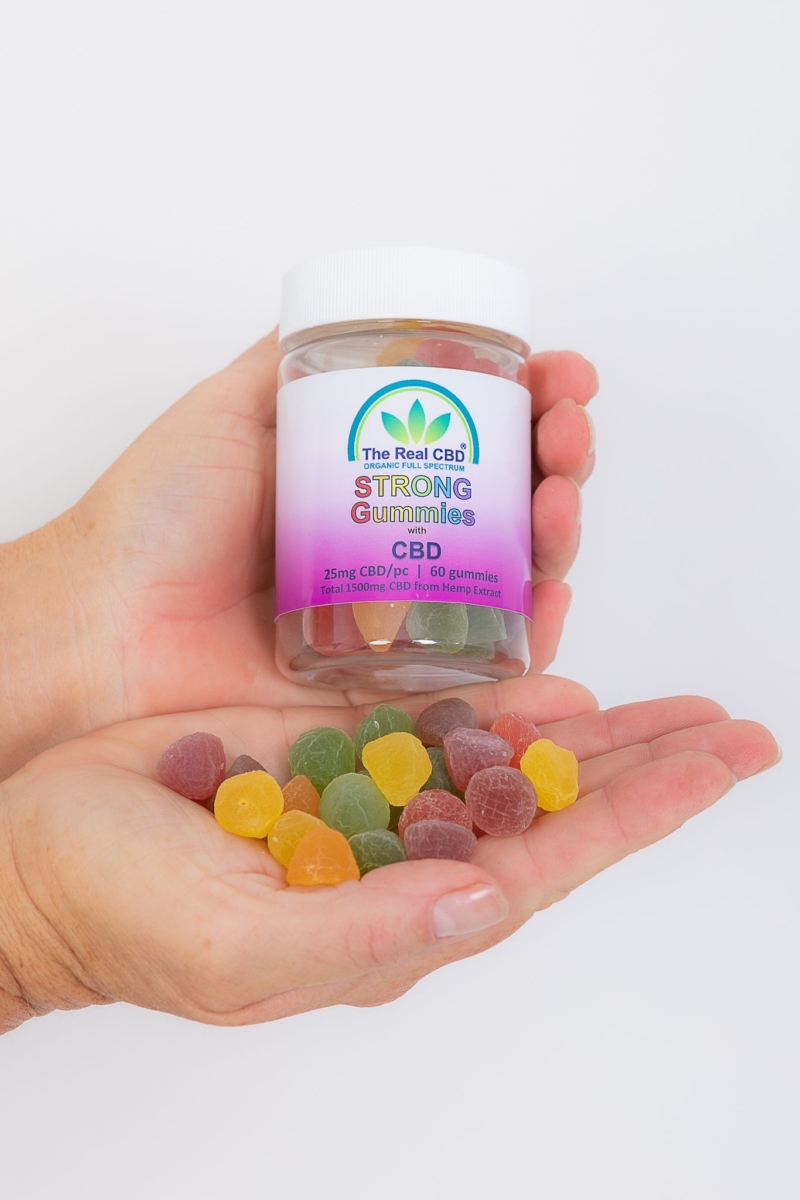
For those seeking optimal oral CBD supplementation, sublingual administration offers higher bioavailability and faster onset compared to edibles. Sublingual CBD absorption rates vary but can reach as high as 35%.
The sublingual method involves placing CBD oil under your tongue for 30-90 seconds, allowing it to bypass the digestive enzymes and first-pass metabolism. Any residual liquid can be swallowed.
Edible CBD Bioavailability: Capsules and Gummies
Oral consumption of CBD, such as CBD gummies, pills, and capsules, is convenient but offers the lowest average absorption rates, ranging from 13% to 19% in humans. This means a significant portion of your CBD goes unused.
Why? Stomach acids and enzymes break down CBD before it can reach the small intestines, where absorption occurs. The CBD that survives must then pass through the liver's first-pass metabolism, further diminishing its effectiveness.
How to Enhance the Bioavailability
Ever wondered why some medications recommend taking pills with a meal? Eating alongside CBD can improve its bioavailability. Research at the University of Minnesota found that consuming CBD with high-fat foods can increase CBD levels in the blood up to fourfold. Why? Cannabinoids are fat-soluble, and our bodies, made up of primarily water, struggle to absorb them efficiently.
You will also find CBD Soft gels mixed with carrier oils like coconut or hemp seed oil, enhancing this by hitching a ride on fat molecules to bypass the first-pass metabolism.
Transdermal: Topicals and Patches
Applying CBD through the skin is minimally invasive but has limited bioavailability. CBD topicals, such as lotions and massage oils, interact with cannabinoid receptors in the skin for localized effects but don't enter the bloodstream.
To maximize the effectiveness of topical CBD, ensure it has a high CBD concentration (at least 5 mg/mL) and consider skin-nourishing ingredients like jojoba oil and essential oils for skin wellness.
Inhaled CBD Bioavailability: Vapes and Smokeables
Smoking CBD provides the most efficient and rapid way to use it, but it is not suitable for everyone due to lung irritation concerns. Smoking and vaping yield similar bioavailability rates, potentially reaching as high as 56%.
Inhalation bypasses digestion and first-pass metabolism, allowing CBD to be absorbed directly into the bloodstream. However, both methods carry some risk of lung irritation.
Rectal CBD Bioavailability
Rectal administration may sound unconventional, but it can be necessary for specific situations. It offers a bioavailability rate between 25% and 50%. Compounds administered rectally bypass liver metabolism due to the rich blood supply in the rectal area.
The Intravenous way
Intravenous CBD administration is rare and primarily reserved for clinical use. It provides 100% bioavailability but may not be the most effective method, as CBD breaks down faster compared to other delivery methods.
Best CBD bioavailability oil vs. inhalation
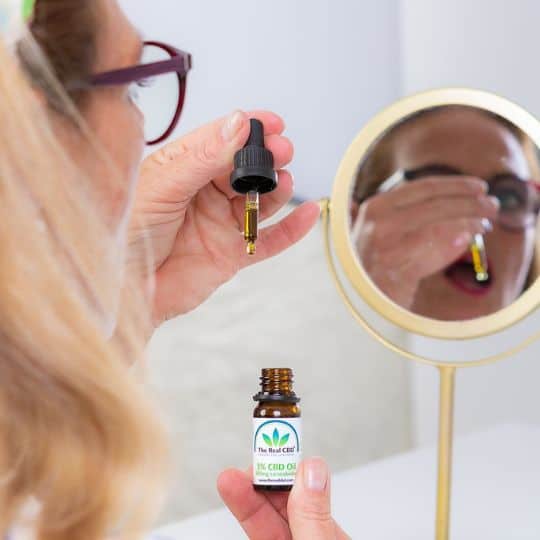
- CBD Oil:
- Oral Ingestion: When you take CBD oil orally, such as by swallowing it or mixing it with food or beverages, it goes through your digestive system. This process can result in lower bioavailability, typically ranging from 4% to 20%. This means that only a small percentage of the CBD you consume actually reaches your bloodstream.
- Sublingual Administration: Placing CBD oil drops under your tongue allows for a more direct route to absorption through the tiny blood vessels in your mouth. This method offers higher bioavailability compared to oral ingestion, ranging from 12% to 35%. It's a popular choice for those looking for faster effects.
- Inhalation Methods:
- Vaping: When you vape CBD, CBD oil bioavailability vs. inhalation it has heated and turned into a vapor that you inhale. This method provides one of the highest bioavailabilities, typically ranging from 34% to 56%. The reason for this efficiency is that the CBD vapor enters your lungs directly, bypassing the digestive system.
- CBD Inhalers: Similar to vaping, CBD inhalers also offer high bioavailability, ranging from 34% to 46%. These inhalers deliver a precise dose of CBD in an inhalable form, making it a convenient and effective option.
Break down the differences:
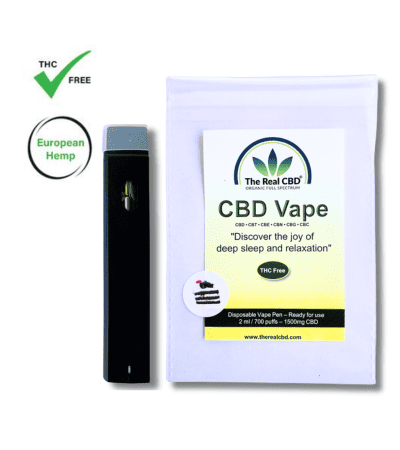
- Speed of Onset: Inhalation methods, whether vaping or using inhalers, offer a rapid onset of effects. You can typically feel the effects within minutes. In contrast, CBD oil taken sublingually may take 15-30 minutes, while oral ingestion can take even longer.
- Duration of Effects: Inhaled CBD tends to have a shorter duration of effects, often lasting a few hours. Sublingual CBD may last slightly longer, while CBD consumed orally can have the longest-lasting effects, often up to several hours.
- Precision of Dosage: Inhalers and sublingual CBD products allow for precise dosage control, making it easier to tailor your CBD intake to your specific needs. With oral ingestion, dosing can be less precise.
- Health Considerations: It is essential to consider your health when choosing a method. Some individuals may have
Ultimately, the choice between CBD oil and inhalation methods depends on your preferences, desired effects, and health considerations. If you prioritize rapid onset and precise dosing, inhalation methods may be preferable. However, if you prefer a longer-lasting effect or have concerns about lung health, sublingual CBD oil may be a better fit. Consulting with a healthcare professional or CBD expert can help you make the right choice for your specific situation.
Related Contents:
CBD Marketing Claims: “Boosting Bioavailability”

The CBD industry explores various innovations, including Nano CBD or “water-soluble CBD,” which claims to enhance oral CBD bioavailability. Nano-emulsion technology reduces CBD particles to such small sizes that they appear to dissolve in water, improving absorption. Manufacturers may encapsulate these Nano CBD particles in Nano-structured lipid carriers (NLCs) to further enhance absorption.
While promising, research on Nano CBD is limited, and the term “Nano CBD” is loosely regulated. Always choose reputable brands that conduct independent testing and stay updated on nanotechnology CBD research.
Factors Affecting it
Beyond external factors, internal factors can affect how your body uses CBD:
- State of Health: Liver health and other health conditions can affect CBD metabolism and effectiveness.
- Genetics: Genetic factors can influence how quickly your body processes CBD.
- Dose: Adjusting your CBD dosage can affect absorption.
- Fasting vs. Food: Taking CBD with food, especially high-fat meals can enhance absorption.
The Real CBD Commitment to High Bioavailability
At The Real CBD, we are dedicated to providing you with products that offer exceptional bioavailability. We believe in harnessing the full potential of CBD and other cannabinoids from the Cannabis sativa plant to help you in the most natural way possible.
Whether you prefer sublingual CBD oils, capsules, or other products, we ensure that our formulations are designed with your well-being in mind. Our team of cannabis experts is always available for personal consultations to help you find the perfect CBD solution for your needs.
CBD and the Grape Fruit Effect
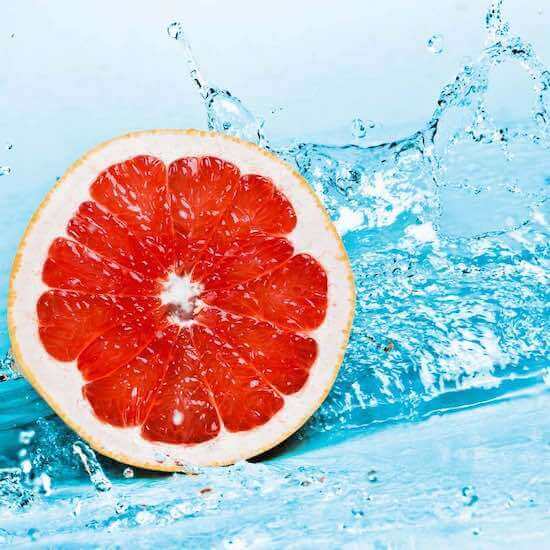
You may have heard about the grapefruit effect when taking certain medications. It turns out that CBD can also have a similar interaction with some drugs, and it is important to understand how this works.
The grapefruit effect, formally known as the “grapefruit juice interaction,” is a phenomenon where consuming grapefruit or grapefruit juice can affect the way certain medications are metabolized in your body. This happens because grapefruit contains compounds called furanocoumarins that can inhibit the activity of enzymes in your liver responsible for breaking down these medications. As a result, the medication can stay in your body longer than intended, leading to potential side effects or adverse reactions.
Now, let us connect this to CBD. CBD, like grapefruit, can interact with the same enzymes in your liver, particularly those in the cytochrome P450 family. These enzymes are responsible for metabolizing a wide range of medications, including some commonly prescribed drugs.
When you take CBD alongside medications metabolized by these enzymes, it can potentially slow down their breakdown, just as grapefruit does. This means that the medication may remain in your system longer, and you could experience stronger or longer-lasting effects, which may not always be desirable.
CBD and other medications
It is important to note that not all medications are affected by CBD in the same way. Some drugs may have a more significant interaction, while others may not be affected at all. The extent of the interaction can also depend on the dosage of both CBD and the medication, as well as individual factors like your metabolism.
To ensure your safety, it is crucial to talk to your healthcare provider if you are considering using CBD alongside any prescription medications. They can provide personalized guidance based on your specific situation and the medications you are taking.
The Takeaway: Maximizing CBD Bioavailability
As CBD becomes more accessible, understanding its bioavailability is crucial for optimizing its effects. Your genetics, health, and chosen consumption method all play roles in CBD's efficacy. If you are using CBD for health reasons, consult a healthcare professional to tailor your CBD use to your specific needs.
FAQ
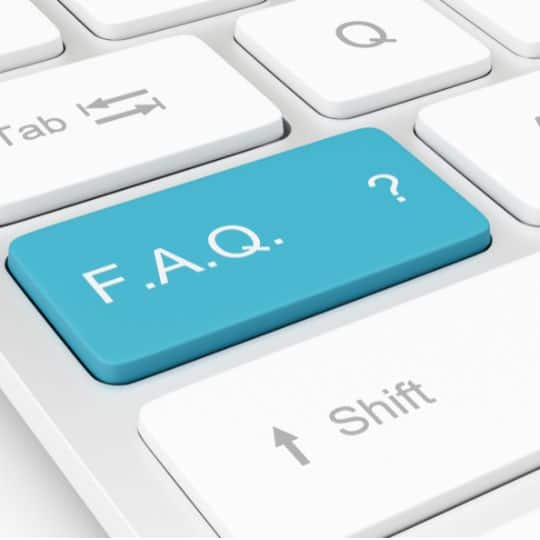
CBD bioavailability refers to how efficiently the body absorbs and utilizes CBD. It measures the portion of CBD that enters the circulatory system and is available for physiological effects. Understanding CBD bioavailability is essential for determining optimal dosages and administration methods.
CBD bioavailability is affected by the method of administration, the formulation of the CBD product, and individual factors like metabolism and digestive processes. Optimizing these factors is key to enhancing CBD bioavailability.
Among various methods, sublingual administration typically provides the highest CBD bioavailability. Sublingual CBD avoids digestion and first-pass metabolism, allowing efficient absorption and rapid onset of effects.
CBD oil, when taken sublingually, can have a bioavailability of up to 35%. This means a significant portion of the CBD is

I am a certified expert in Medicinal Cannabis. We are all about giving correct and trustworthy information. We know how important it is to learn about CBD and cannabis, which is why we want to be your go-to source for trustworthy information. We help you improve your health by using our knowledge and experience as a starting point.

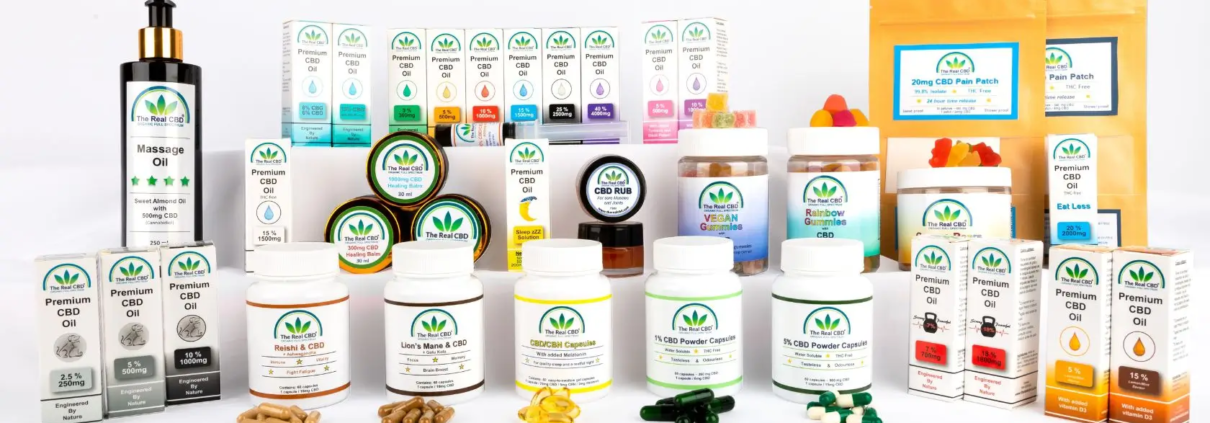
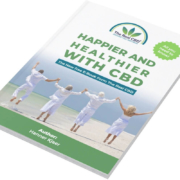



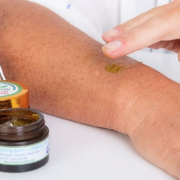

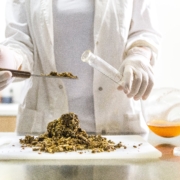
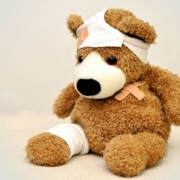




Leave a Reply
Want to join the discussion?Feel free to contribute!